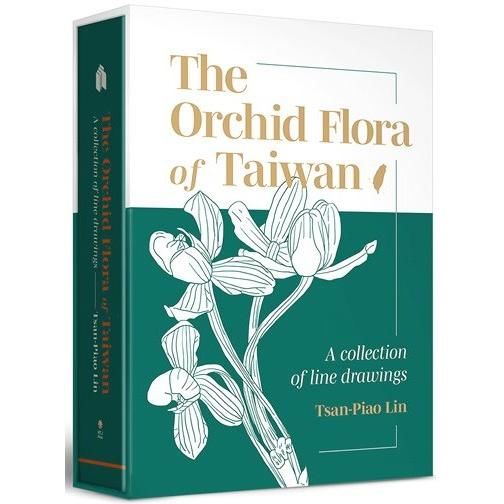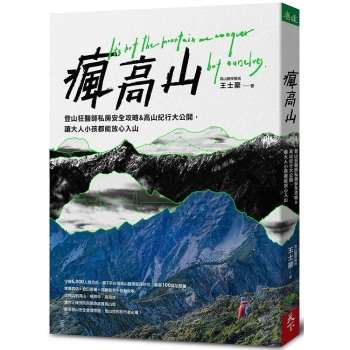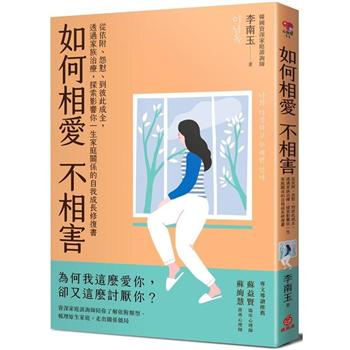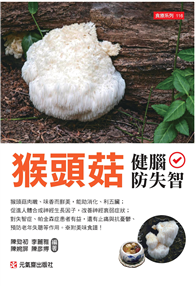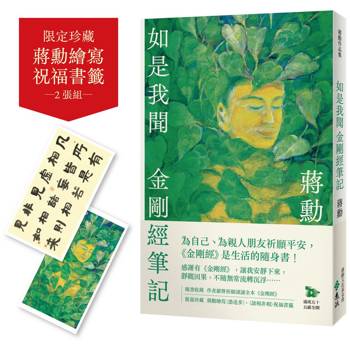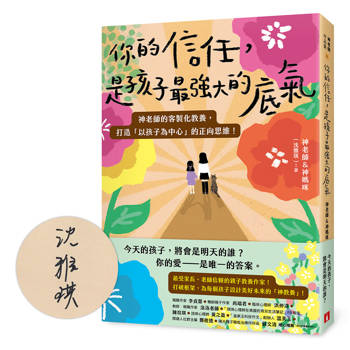The history of written records of native orchids in Taiwan began in 1857 with a British botanist. After more than 160 years of study by European, Japanese, and Taiwanese scholars and enthusiasts, the list of native orchids increased to more than 470 species, including natural hybrids and varieties. The author exerted extensive e orts to include all known species in this work and arranged them based on the order of subfamilies. Scientific names, synonyms, and relevant references are provided for each species. Many of the species are provided with additional explanations in the “note” section. The uniqueness of this book is the line drawing illustrations which emphasize the structure of the column. In total, 500 figures are presented to accompany the species descriptions. These extensive line drawings were accumulated since 1971 and were mostly drawn by the author. More than that, this book also presents the gynostemium structure of more than 380 species, including the stigma, pollinium, rostellum, and column, in high-resolution color plates.
臺灣蘭科植物誌
臺灣野生蘭的最早文獻始於1857年英國植物學家的記錄。歷經歐洲學者、日本學者與臺灣學者160年來的努力,臺灣野生蘭的數目至少累積了470種,包含變種與天然雑交種。本書搜羅了這些野生蘭種類,以亞科演化順序排列;亞科內屬的排列則根據屬名的ABC順序。毎一物種則臚列其學名、異名與相關文獻。許多種類都有附註說明。本書的獨特性在於提供品質優良的線描圖,特別強調蕊柱的形態構造。本書共有500張線描圖,伴隨著對種的描述。其中50%的圖是1970年代的作品,現在則附上新的批註。此外尚提供了超過380種蕊柱構造(包含柱頭、花粉塊、喙等等)的顯微彩色照片。
作者簡介:
This book came to fruition only after numerous efforts over the past half a century. Tsan-Piao Lin's (1948~) passion for native orchids dates back to his graduate program in the Department of Botany, National Taiwan University (NTU). In 1971, he joined a plant hunting project associated with publication of the Flora of Taiwan, and that was the beginning of his orchid story. In the last 50 years, the relationship between Prof. Lin and native orchids can be summarized into three stages. In the first stage (1971~1981), Lin studied in the master’s program and later worked in the Taiwan Forestry Research Institute, where he discovered many new orchids, and based on those findings, he published the three-volume Native Orchids of Taiwan (1975~1987). The second stage began with his pursuit of a PhD degree at Oregon State University, USA in 1981. In these 25 years, he developed interests in plant molecular biology and no longer had anything to do with native orchids. The last stage began from about 2005, when he accidentally came back to the systematics of native orchids. In the last 3 years, before and after his retirement in January 2017, he dedicated himself to studying orchids and writing this book. He will continue to work on the systematics of native orchids because he is now forming an information center with large amounts of input from di erent corners of Taiwan.
林讚標
國立臺灣大學植物科學研究所名譽教授,美國奧瑞岡州立大學博士。
林讚標博士對野生蘭的熱情緣自臺大植物系研究所階段。1971年,他參與了為出版《臺灣植物誌》(Flora of Taiwan)而展開的植物採集活動,與蘭科結下因緣。過去50年間,林博士與野生蘭的關係分為三個階段:第一階段(1971至1981),他就讀碩士班,之後服務於行政院農委會林業試驗所,此間他發現了許多新種野生蘭,並於1975至1987年間出版《台灣蘭科植物》三冊;第二階段自1981起,他出國取得博士學位,回到林試所,並於2000年轉任臺大植物系教職,然此25年間他的研究興趣轉向林學與植物生理學,與野生蘭全然無涉;最後一個階段約自2005年開始,因朋友牽引,他重回野生蘭的研究領域。2017年於台大退休前,他已完全投入於野生蘭的研究,從事撰文、繪圖與出版等,現已形成一個以他為核心的野生蘭資訊中心,未來他仍將繼續貢獻他對野生蘭的見解。
作者序
Preface
My passion for native orchids was not immediately aroused when I became a graduate student in the Botany Department of National Taiwan University (NTU) in summer 1971. At that time in the shade house of our department, many native orchids which were left by Horng-Jye Su were being cultivated. He had used them for his master’s thesis study only 2 years earlier. My adviser, Dr. Su-Hwa Tsai, encouraged me to use them for an anatomical study. At that time, a large-scale plant survey or hunting project had just begun which was led by Dr. Charles E. DeVol for the purpose of publishing the Flora of Taiwan (first edition published in 1978). Because of the above scenario, I was assigned to collect wild orchids if I wanted to participate in the field trip team. From 1971 to 1974, I climbed several of the highest mountains in Taiwan, including Mt. Morrison (Jade Mt.), Mt. Hsueh (Snow Mt.), Mt. Tapachien, and Mt. Peitawu. It was exciting to see so many fascinating orchids for the first time in my life. From 1973, I worked for the Taiwan Forestry Research Institute (TFRI), where I continued collecting orchids and making line drawings. After a collecting field trip, I had to go to the departmental library to find possible names from the old Japanese literature. Most descriptions, however, had no photo or figure, so identification was very difficult and vague. In 1974, I decided to publish what I knew about orchids from our field trips that culminated in the publication of the first volume of Native Orchids of Taiwan in 1975 and the second volume in 1977.
After the publication, I garnered much important attention from Taiwanese and Japanese researchers. Ren-Li Wang, the first professional plant painter in Taiwanese history, had just retired from the TFRI, but was still temporarily working in the herbarium of the institute. In summer 1976, he presented me with 12 exquisite watercolor drawings of native orchids. He was assigned a job in 1933–1936 during the Japanese occupation period to draw figures under the supervision of Genkei Masamune who was working at Taihoku Imperial University University. Mr. Wang deliberately kept some of the drawings which he should have presented to Mr. Masamune. I was so happy because these figures are so precious to Taiwan. In 1976–1977, Dr. Ken Inoue, who was studying the Platanthera, wanted to visit me. So we had a field trip to Taipei County to see the flowering of Platanthera stenoglossa. Then we developed a joint project to study Taiwanese Platanthera because most type specimens of our Platanthera were deposited in the herbarium of Tokyo University. That cooperation resulted in publication of Platanthera of Taiwan in 1980. To further my education, I decided to go to the US for an advanced degree. In 1980, I went to the Crop Science Department, Oregon State University to learn seed biology which was in line with my job description at the TFRI. On the way to the US, I stopped by Japan to meet Kohkichi Segawa in Tokyo, a major contributor of living orchid plants for Noriaki Fukuyama’s study. I also visited Takasi Tuyama who was studying Gastrodia at that time. In the 1980s, Segawa was elderly, and he decided to present me with some duplicate orchid specimens which he provided to Dr. Fukuyama. All of those specimens, including the only Neottia acuminata, are deposited in the herbarium at TFRI.
In 1987, I became a plant physiologist and seed biologist and returned to the TFRI. From 1988 to 2000, I studied forest seed storage and population genetics. In 2000, I moved to the Botany Department, at NTU which was a much better research environment for me. I continued my study of plant molecular biology. When I had a chance to go into the field for tree seed collection, native orchids that I encountered during my trip never received my attention. Despite Wei-Min Lin continuing to press me to publish descriptions of his new orchids, it was not until 2004 when I was finally moved to write simple papers in my leisure time for publication in the journal Taiwania.
From 2005 to the present, I published many papers regarding new or newly recorded orchids of Taiwan. It is interesting to note that in the modern period before 1980, most new or newly recorded species were found by myself, but after 2000, none of the new or newly recorded species were discovered by me. I realized that a clear delimitation between species is fundamental for testing evolutionary theories and is integral for implementing conservation strategies. I felt a responsibility to present, as far as I could, a carefully prepared orchid flora for the people of Taiwan. Based on this book, more than 470 species, varieties, and natural hybrids are presented including more than 500 line drawings which far exceeded my earlier Native Orchids of Taiwan published between 1975 and 1987 which consisted of about 270 entities. The unique point of the line drawings is a focus on the morphology of the gynostemium including the pollinarium, pollinia, viscidium, and rostellum which are generally omitted from many orchid books. I must thank the many wildorchid hobbyists who in the last 15 years continuously provided me with unknown orchids they had collected from every corner of the islands of Taiwan. Before I retired from my post at the Institute of Plant Biology, NTU in 2017, I possessed abundant information on our native orchids. I made a promise to myself that one day I would compile all that we had learned and publish a complete version of our native orchids so that researchers worldwide can learn something from Taiwan.
Preface
My passion for native orchids was not immediately aroused when I became a graduate student in the Botany Department of National Taiwan University (NTU) in summer 1971. At that time in the shade house of our department, many native orchids which were left by Horng-Jye Su were being cultivated. He had used them for his master’s thesis study only 2 years earlier. My adviser, Dr. Su-Hwa Tsai, encouraged me to use them for an anatomical study. At that time, a large-scale plant survey or hun...
目錄
Foreword
Preface
Acknowledgements
Introduction
Physiographic features, climate, floristics, and vegetation of Taiwan
History of orchid exploration in Taiwan
Key to the subfamilies of orchids in Taiwan
Taxonomical treatment and line drawings of Taiwanese orchids
Literature cited
Color plates of gynostemium
Appendix
Index of scientific names vs figures and color plates
Index of scientific names
Foreword
Preface
Acknowledgements
Introduction
Physiographic features, climate, floristics, and vegetation of Taiwan
History of orchid exploration in Taiwan
Key to the subfamilies of orchids in Taiwan
Taxonomical treatment and line drawings of Taiwanese orchids
Literature cited
Color plates of gynostemium
Appendix
Index of scientific names vs figures and color plates
Index of scientific names
